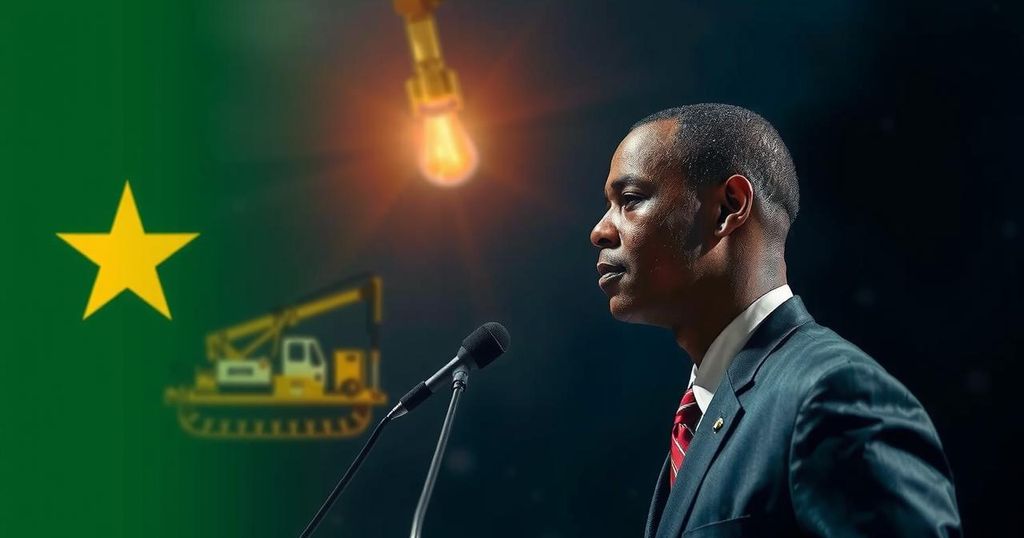Ghana’s illegal mining, known as “galamsey,” poses significant environmental and economic challenges as the nation approaches a presidential election. Unemployment and poverty drive individuals like Frank to engage in these perilous activities, leading to severe land and water degradation. The ruling party and opposition have yet to provide feasible solutions, while public protests call for immediate action to address these critical issues. The election presents an opportunity for voters to demand accountability and sustainable practices.
In Ghana, illegal mining, locally referred to as “galamsey,” is a burgeoning yet environmentally devastating industry. As the nation approaches a presidential election, this issue has emerged as a significant topic of concern, with candidates grappling over solutions to address the ecological and economic impacts of illegal mining. Individuals like Frank, who engage in these activities, highlight the stark realities of unemployment and poverty, forcing them into perilous work environments in search of sustenance.
The effects of galamsey are profound, with severe degradation affecting farmlands, water sources, and the country’s vital cocoa industry. Ghana faces rising unemployment, prompting youth to turn to illegal mining as a means of survival, despite its hazardous implications. The ruling New Patriotic Party (NPP) and the opposition National Democratic Congress (NDC) have yet to present viable, enforceable plans to remedy the situation, prompting widespread frustration among citizens and advocates for environmental protection.
Authorities have attempted to curtail illegal operations through crackdowns, yet these efforts are perceived as inconsistent, igniting calls for a more comprehensive approach. The looming election could serve as a pivotal moment, as voters may leverage their choices to demand accountable governance and sustainable practices. With the stakes so high, the political dialogue surrounding illegal mining will likely shape Ghana’s future socioeconomic landscape.
Ghana, recognized as the world’s sixth-largest gold exporter and the second-largest cocoa producer, finds itself entrenched in a crisis stemming from illegal mining activities. The term “galamsey” denotes unauthorized mining operations that have proliferated amidst rising gold prices and increasing unemployment rates. This phenomenon has significant implications for the environment, including deforestation, soil degradation, and contamination of water bodies, driven by individuals seeking livelihoods. As the government nears a critical election, the ramifications of galamsey are positioned as a prominent issue, reflecting a broader need for responsible, sustainable mining practices.
In conclusion, as Ghana approaches its presidential election, the illegal mining sector remains a pressing issue that intertwines economic survival and environmental sustainability. With many citizens, particularly the youth, relying on galamsey for their livelihood, it underscores the urgent necessity for political candidates to address this matter constructively. The upcoming election serves as not only a referendum on leadership but also as a critical opportunity for voters to advocate for responsible governance and environmental stewardship in the face of escalating challenges.
Original Source: www.barrons.com






